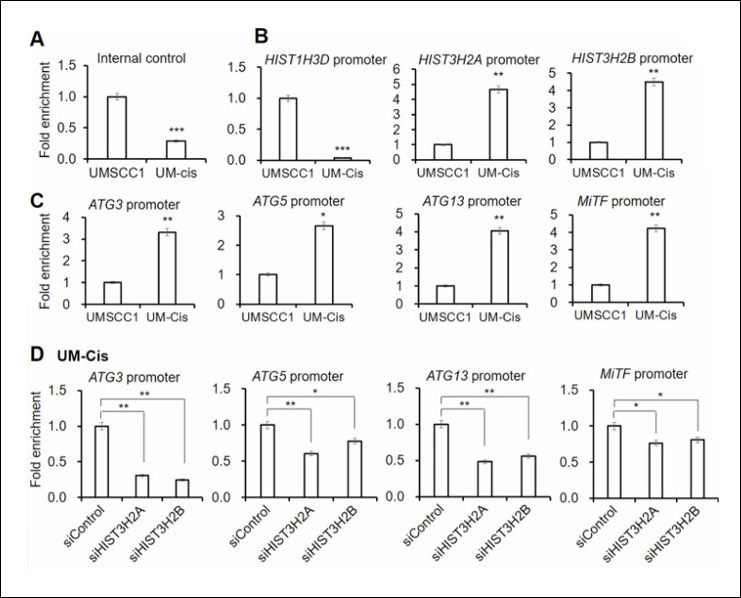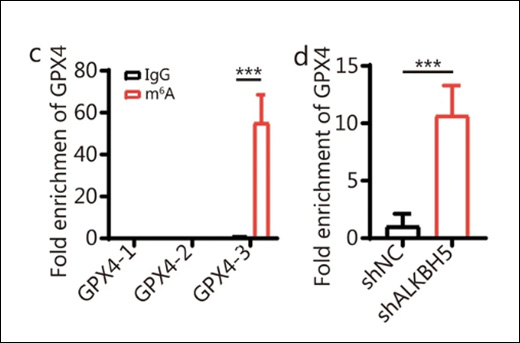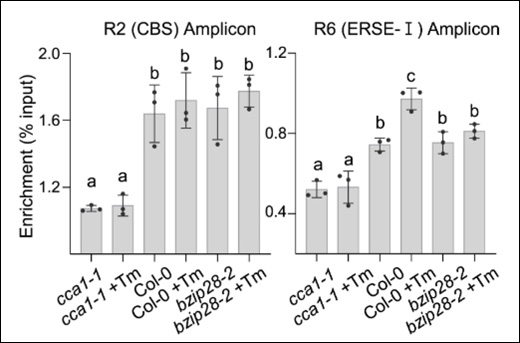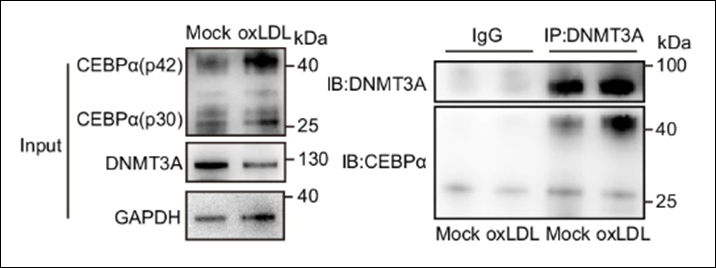Park K et. al. (October 2023). Bioaccumulation, microbiome composition and immunity, and epigenetic signatures associated with exposure to spherical, fibrous, and fragmented microplastics in the mussel Mytilus galloprovincialis J Hazard Mater. 462:132691.
This article investigates the effects of different shapes and sizes of polyethylene terephthalate microplastics (MPs) on Mediterranean mussels. The study reveals that the survival rate, bioaccumulation patterns, and the mussel's epigenetic and immune responses vary based on the shape and size of the MPs, with fiber-shaped MPs causing morphological changes in mussel tissues, highlighting potential hazards associated with microplastic exposure.
Products Used: MethylFlash Methylated DNA Quantification Kit (Fluorometric)
Peng Y et. al. (October 2023). PLK1 maintains DNA methylation and cell viability by regulating phosphorylation-dependent UHRF1 protein stability Cell Death Discov. 9(1):367.
In this study, researchers explore the role of PLK1, a key mitotic regulator, in DNA methylation. They discovered that PLK1 inhibition disrupted global DNA methylation and increased the expression of tumor suppressor genes by modulating UHRF1 protein stability through phosphorylation, providing insights into a novel anticancer mechanism of PLK1 inhibitors.
Products Used: MethylFlash Methylated DNA Quantification Kit (Fluorometric)
Zhai P et. al. (October 2023). DNMT1-mediated NR3C1 DNA methylation enables transcription activation of connexin40 and augments angiogenesis during colorectal cancer progression Gene. :147887.
This study investigates the role of connexin 40 (CX40) in angiogenesis within colorectal cancer (CRC). They found elevated CX40 expression in CRC, which was linked to poor patient prognosis, and CX40 was identified as a promoter of angiogenesis. This effect was controlled through DNMT1-mediated NR3C1 DNA methylation, underscoring the impact of this methylation in enhancing angiogenesis during CRC progression.
Products Used: EpiQuik MeDIP Ultra Kit
Balci-Ozyurt A et. al. (October 2023). Evaluation of possible cytotoxic, genotoxic and epigenotoxic effects of titanium dioxide nanoparticles and possible protective effect of melatonin Toxicol Mech Methods. :1-13.
This article explores the toxic effects of normal-sized and nano-sized titanium dioxide nanoparticles (TiO2 NPs) on 3T3 fibroblast cells. Both types of TiO2 NPs exhibited significant toxicity, with nano-sized TiO2 causing higher DNA damage and global DNA methylation, while normal-sized TiO2 led to lower H3 acetylation. Melatonin demonstrated partial protection against the toxicity induced by TiO2 NPs.
Products Used: EpiQuik Global Histone H3 Acetylation Assay Kit
Lyu Y et. al. (September 2023). Hypoxia-induced m6A demethylase ALKBH5 promotes ovarian cancer tumorigenicity by decreasing methylation of the lncRNA RMRP Am J Cancer Res. 13(9):4179-4191.
This study investigates the role of ALKBH5, an m6A demethylase, in ovarian cancer. They find that ALKBH5 is upregulated in ovarian cancer under hypoxic conditions, and it promotes tumorigenicity by reducing the methylation of the long noncoding RNA (lncRNA) RMRP. The study highlights a novel mechanism in ovarian cancer development and suggests ALKBH5 as a potential therapeutic target for the disease.
Products Used: EpiQuik m6A RNA Methylation Quantification Kit (Colorimetric)
Li J et. al. (October 2023). N6-methyladenosine (m6A) reader YTHDF2 accelerates endothelial cells ferroptosis in cerebrovascular atherosclerosis Mol Cell Biochem.
This article explores the role of YTHDF2, an m6A reader, in cerebrovascular atherosclerosis. The research reveals that YTHDF2 upregulation in human umbilical vein endothelial cells (HUVECs) treated with ox-LDL inhibits proliferation and promotes ferroptosis, and it does so by reducing the stability of SLC7A11 mRNA, highlighting its involvement in the pathophysiology of cerebrovascular disease.
Products Used: EpiQuik m6A RNA Methylation Quantification Kit (Colorimetric)
Meng F et. al. (October 2023). Chlorogenic Acid Modulates Autophagy by Inhibiting the Activity of ALKBH5 Demethylase, Thereby Ameliorating Hepatic Steatosis J Agric Food Chem.
In this study, researchers found that chlorogenic acid (CGA) reduces hepatic lipid accumulation and enhances autophagy, ameliorating hepatic steatosis. This effect is achieved by CGA's inhibition of the ALKBH5 demethylase activity and subsequent regulation of autophagy and the MAPK/ERK signaling pathway.
Products Used: Epigenase m6A Demethylase Activity/Inhibition Assay Kit (Colorimetric)
Li J et. al. (October 2023). Gastric cancer derived exosomal THBS1 enhanced Vγ9Vδ2 T-cell function through activating RIG-I-like receptor signaling pathway in a N6-methyladenosine methylation dependent manner Cancer Lett. 576:216410.
This study explores the role of gastric cancer (GC) cell-derived exosomal THBS1 in enhancing Vγ9Vδ2 T cell function. Exosomal THBS1 was found to significantly improve the cytotoxicity of Vγ9Vδ2 T cells against GC cells by activating the RIG-I-like receptor signaling pathway in a manner dependent on N6-methyladenosine methylation, suggesting its potential for GC immunotherapy.
Products Used: EpiQuik CUT&RUN m6A RNA Enrichment (MeRIP) Kit




 Cart (0)
Cart (0)













